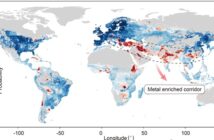The key message taken from a recent conference hosted by Crop Health and Protection (CHAP) and the Soil Association, was that the future of UK plant breeding needs to be more diverse, more collaborative and make better use of ‘big data’.
Sponsored by the Association of Applied Biologists (AAB), PBS International and Cotswold Seeds, the event provided a space for discussions that explored how plant breeding can contribute to a more sustainable future for agriculture; and how it can successfully tackle the modern challenges of 21st century crop cultivation.
The conference included presentations from industry experts such as Professor Tim Benton, the lead researcher on emerging risks at Chatham House, the international affairs think tank, Tom MacMillan of the Royal Agricultural University and Paul Gosling, senior manager of AHDB’s recommended lists.
Delegates then had the opportunity to take part in facilitated discussions in the afternoon, through break-out sessions which focussed on the next steps that can be taken by organisations and businesses to support the plant breeding sector.
Through the conference’s presentations and discussions, themes became apparent: crops and varieties need to be more diverse; collaboration between breeders, farmers and academics is critical; and that any data from on-farm projects or research facilities must be shared and used more effectively, across the entire industry.
“A key theme for the conference was the importance of breeding for resilience,” said Joanna Lewis, a strategy director for the Soil Association, “and the need for farmers to have confidence in a more diverse range of seeds that they can rely on in changing climatic conditions.”
She continued: “While this increases the complexity of the breeding challenge, it was encouraging to hear from voices across the industry that new digital solutions offered an opportunity to decentralise testing and make it more relevant to on-farm conditions, including in low-input systems.”
Ms Lewis also added that the conference was not ‘all about the new’: “We heard about the potential of heritage varieties to be rediscovered and tested against newly relevant traits such as nitrogen efficiency. Overall, there was a welcome energy and optimism in the room, and a determination to re-focus existing cross-sector networks to create the plant breeding system we need for challenging times.”
Dr Ruth Bastow, innovation director for CHAP, also said that because the event had brought together ‘a wide range of stakeholders in an open, collaborative forum’, delegates could identify ‘not only the challenges, but the opportunities’ that can be actively pursued now.
Dr Bastow concluded: “These discussions are invaluable in truly scoping our current scenario, bringing in the knowledge and thoughts of delegates from across the sector for an informed view. We look forward to collaborating further in this space.”




